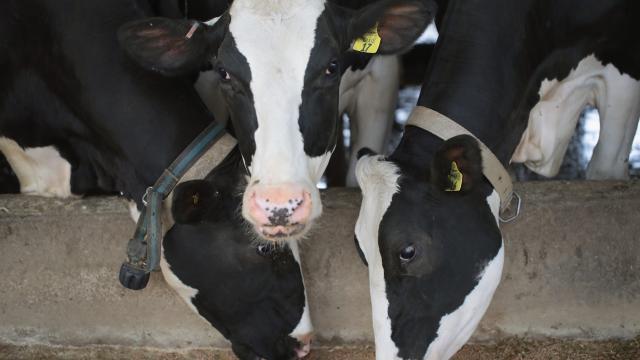The coronavirus pandemic has upended the U.S. food system. Shuttered restaurants are forcing farmers to leave produce rotting in fields and dumping out perfectly good milk. It’s a terrible waste in a time when millions of Americans are losing their jobs and resorting to food banks. But officials are also concerned that all that milk could have disastrous ecological consequences.
Wisconsin’s agriculture and natural resources departments have warned that if raw, unpasteurized milk gets into waterways, it could lower oxygen levels and result in fish kills. Streams already deal with heavy fertiliser and feedlot runoff, but the milk could actually be worse.
“Milk contains higher concentrations of nutrients than manure and has high biochemical oxygen demand which can cause detrimental impact to surface water including fish kills,” they said in a memo.
[referenced url=” thumb=” title=” excerpt=”]
We don’t have to wait to see what that damage could look like; spilled milk, intentional and otherwise, has caused environmental damage in the past. In Minnesota in 2004, for instance, a dairy truck spill caused 6,000 gallons of milk to enter a lake and killed thousands of fish. Today, some farms are being forced to dump tens of thousands of gallons of milk per day. This level of disruption to the dairy industry, experts say, is unprecedented. And without precautions, the impact on riverine wildlife could be unprecedented, too.
To avoid killing fish and other aquatic life”and the rather unpleasant smell of rotting milk”Wisconsin officials advise milk processors to pour their wasted milk into “fields that have the lowest risk of groundwater or surface-water contamination.” The departments recommend dumping wasted milk in manure storage structures, particularly when high rainfall is expected that would cause milk dumped in fields to runoff even faster (though it should be noted manure storage structures”which are often lagoons”are sometimes prone to failure during particularly high rainfall events). The memo also calls for using tools used to spray manure on fields to help deal with excess milk, something that doesn’t appear to be happening in some places based on photos shared on social media.
In theory, none of this would be necessary if all this surplus could just be rerouted to places where it could still be used. Though schools, restaurants, and food service outlets are locked down, demand at grocery stores and food banks is soaring. But the problem is, in our industrialized agricultural system, it’s not as simple for suppliers to reroute wholesale products that are normally sold to restaurants to stores where they are packaged for individual consumers. It’s not easy to transport materials to retailers right now, either. Many truckers who haul dairy products aren’t currently working due to social distancing precautions. All of this, Reuters reports, is “creating logistical and packaging nightmares for plants processing milk, butter and cheese.”
Simply put, food supply chains simply aren’t designed for this kind of crisis. But due to the climate crisis, more global shocks are coming. Maybe now is the time to think about how to redesign the food system to be more resilient.
